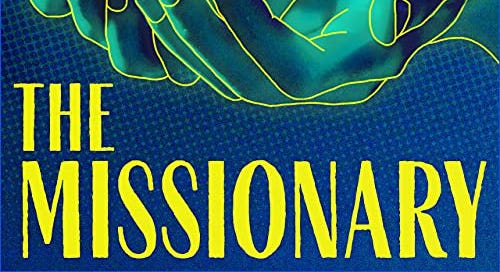Ugandan-set Podcast Exposes Possible White Saviour
What Makes a Podcast About Uganda Successful Worldwide?
In 2009, a young American missionary named Renee Bach built a nonprofit to fight child malnutrition in Uganda. Ten years later, she’s accused of masquerading as a doctor and rumoured to have killed hundreds of children in her unlicensed clinic.
"I have a story about our second episode that might be helpful," says Rajiv Golla, who produced the podcast about Bach, called The Missionary, along with Halima Gikandi and Malcolm Burnley (in partnership with iHeartRadio).
Tip 1# - What Makes a Podcast About Uganda Successful Worldwide?
"From producing episode 2 i learnt that uncertainty shouldn't be left in the lap of the listener. You should lead them to the point you're making or the question you hope to leave them with," says Golla. This is a golden rule of audio that I'm glad he's brought up. Episode 2 of The Missionary is particularly harrowing where they dig into the story of a child called Patricia.
"I traveled to Uganda in January 2019 to write a book about modern Indian migration across the African continent. But just a few days after arriving, I met with the activists behind NoWhiteSaviors and they informed me about the story," says Golla.
"This is an international story and the contours of what happened at Bach's nonprofit 'Serving His Children' are going on in Uganda, in East Africa, in India, everywhere there is a development/NGO industry that stands to make money from 'aid'. The only thing that made this story different was just how vivid and tragic the consequences were," he says.
With The Missionary the producers attempted an ambitious three-host structure where each of them (Halima Gikandi, Rajiv Golla, and Malcolm Burnley) took turns telling different aspects of a sprawling story.
Co-producer Burnley gives a tip about producing a podcast with three hosts. "First ask, do we need more than one voice to tell any part of the story? Is there a clear plan for how the hosts will interact? Does this structure propel the story forward? Will it confuse our audience?" he says.
The idea was that every host would lend their voice to one thread of the reporting, starting off separately (hosting one episode alone) and developing as a collective voice as the episodes progressed. "In the end, I think it worked well at times, didn't work so well at others," he says.
A compelling hosting structure will take time to establish. "Don't take that step of pre-production for granted. It will also inform your script-writing and production schedule to a degree that I frankly underestimated," he says.
LISTEN NOW: A missionary named Renee Bach
left her comfortable life in America to start a malnutrition program in rural Uganda. But a decade later she’s accused of masquerading as a doctor and rumoured to have killed hundreds of children in her unlicensed clinic.
Hosted and reported by Rajiv Golla, Halima Gikandi and Malcolm Burnley.
Listen on Apple Podcasts | Spotify
Tip 2# - It Doesn’t Happen If it Isn’t on Tape
You should get in the habit of putting your recorder (or even your phone) on before you even get out of your car to face the world. You must always be rolling. Now, when I’m working on a story, I leave mine recording while I drive in case I want to explain my fear or apprehensions in real time. The moment when the interview is over can often be what you can use to help set up a scene or give a sense of the environment — whether it is a joke or a casual remark. You want a quiet, cozy environment whenever possible, but if there are distracting sounds that are unavoidable, you can allow them to inform your story and the depictions of your characters.
In the second episode of Alibi there was constant screeching from the wheelchair of one of my characters — Anthony’s bank robber brother — but I built that into my description of him. And once the listener knows why this is “upsetting” the interview, then they can appreciate the scene and the story even more.
This was adapted from an article I originally wrote for GIJN.
All the best,
Paul
If you'd like to chat more about podcasts you can just hit "reply" to this letter. I'd love to hear from you.
LISTEN NOW: Alibi: Season 1 is the investigation into a possible wrongful conviction. Over 8 episodes it looks into if one man, Anthony De Vries, is guilty of the crimes he's been incarcerated for.
Listen on Apple Podcasts | Spotify





